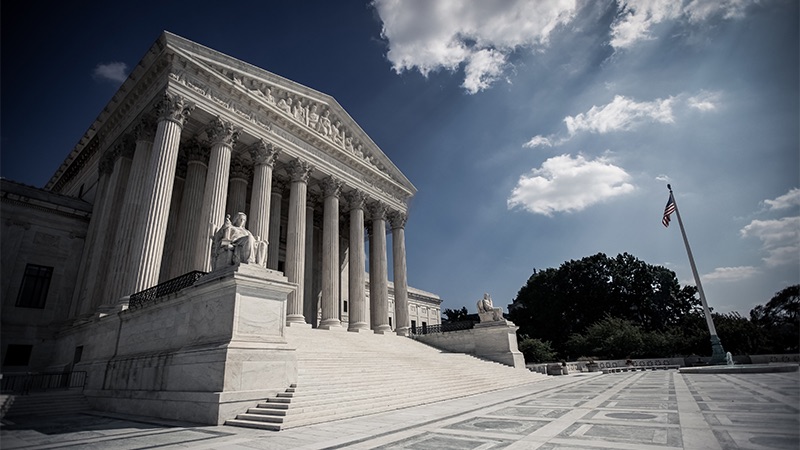The United States Supreme Court today handed down a unanimous ruling, remanding the case of Little Sisters of the Poor and other petitioners, back to the lower courts to pursue an accommodation. What this means is that the government cannot fine and penalize these groups for objecting to the Administration’s demand that they authorize contraceptive coverage for their ministry’s employees. This is an encouraging development, but it also tells us how much work there is to do in rebuilding a culture of religious freedom in this country. Here are four lessons we can learn from this case.
1.) Religious Liberty Is Alive and Well
On the one hand, the ruling is a tremendous win for religious liberty. I, for one, was worried about this case after the death this year of Justice Antonin Scalia. The Court ruled unanimously that an accommodation for these conscientious objectors must be pursued. This is after the attorneys for the Little Sisters and their allies produced evidence that there are all sorts of ways to get a win-win, where the government can carry out its objectives without paving over the consciences of religious objectors (Full disclosure: I serve on the board of directors of the Becket Fund for Religious Liberty, which represents the Little Sisters).
This ruling puts a stop, for now, to the government’s bullying of these organizations, threatening to wipe them out of existence for holding to their theological and moral principles. The Court didn’t share the government’s cavalier disregard for these principles. That’s good news.
2.) Religious Liberty, Even in Victory, Is Imperiled
While this ruling is a good one, the fact that the case had to be even argued at all is a bad omen of the times. Who would have predicted a few years ago that the Supreme Court would have to weigh in on whether the government could forcibly use nuns to deliver contraceptive drugs and devices? In this sense, this case is similar to another unanimous decision a few years ago, Hosanna Tabor, which ruled that churches and ministries set their own qualifications for ministers. The ruling was welcome, but the fact that the debate has to be had at all is troubling.
3.) Religious Liberty Requires an Explanation of Religion Itself
Throughout this case, the government has insisted that its proposed “accommodations” solve the conscience problem. In this, the government has tried to instruct nuns and others on their own religion, with the catechism of state power. Behind this is a larger problem. Increasingly, secular progressive people have diminishing contact with orthodox religious people (and vice-versa), through the sorting of American society and even American media into self-contained silos. If one doesn’t know people who believe they are going to give an account before God for their use of their lives and their resources, one is not going to see religious freedom as all that important. That’s why so many dismissed this case with a roll of the eyes and a “just sign the form” They don’t understand why the petitioners couldn’t have their consciences implicated in what they believe to be sin.
Our defense of religious liberty, then, cannot simply be about explicating the meaning of the First Amendment or even the way that religious freedom helps the common good (although both of these are important). We must explain to our more secular neighbors why we believe the things we do. For those of us who are orthodox Christians, that means explaining to an often incredulous world why we believe the turning-point of history is the Judgment Seat of Christ.
4.) Religious Liberty Means Standing Up for Others’ Rights of Conscience
The plaintiffs in this case all agreed that the Obama Administration’s mandate is burdensome, but they disagreed at points as to why. I, and many other evangelical Christians, object in every case to abortion-causing drugs or devices but not necessarily to contraception itself. The Little Sisters of the Poor and other Catholic groups conscientiously object to all artificial contraception. We don’t have to agree with one another on all these things in order to agree that the government shouldn’t be in the business of violating the free exercise of one’s deepest held religious beliefs.
Advocacy for religious liberty is not about special pleading for one’s own religion. Religious liberty means that even if one were to work out a “deal” with one’s government protecting one’s own beliefs and practices, that’s not enough. Religious liberty is not a government favor but a right granted by God. That’s why Christians should be the ones standing up for our Jewish neighbors’ right to circumcise their sons or our Muslim neighbors’ right to construct their houses of worship or our Sikh neighbors’ right to wear their religiously-mandated beards and head-coverings. This isn’t moral or theological relativism but the reverse. We believe that these spiritual disagreements we have with one another must be resolved by spiritual means (that is, through the gospel’s open proclamation of the truth), not by the coercive power of the government. We believe, after all, that external conformity does nothing. Only through new birth can one enter the kingdom of God, and that cannot be legislated or dictated by bureaucrats.
Today’s Supreme Court ruling means that this issue lives to fight another day. We should be both encouraged and steeled in our resolve to stand up, always and everywhere, for soul freedom.








